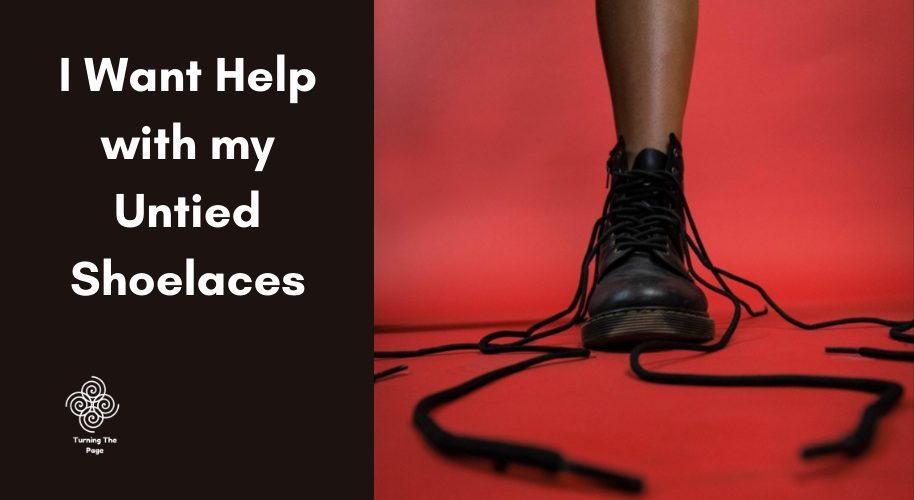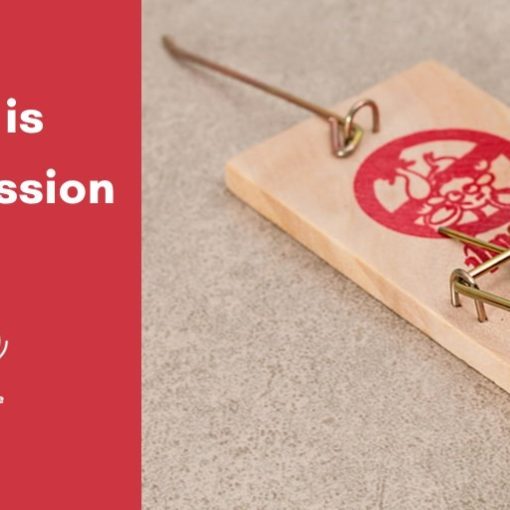At times there are things we can’t do for ourselves, but perhaps someone else can. So we ask for help with our untied shoelaces.
Recently I woke up with pain in my left shoulder. I was in agony. My wife was away from home, and I knew that I had to go to an emergency doctor. So I dressed. But when I came to put my shoes on, I realized I wasn’t able to tie the shoelaces up. I didn’t care. I needed help so I left home with untied shoelaces.
When I reached the 24/7 emergency care center, I was greeted by a nurse. I asked if she would mind if she could do my shoelaces up. She kindly reached down and tied them. She did for me what I could not do for myself.
Eventually, I saw a Doctor, received some medication, and went home. I had been overworking the muscles and had damaged them. After some rest, physiotherapy, and a change in some of the garden machinery I was using, my shoulder is better now.
But it was that small, simple act of someone tying my shoelaces for me that helped me in my distress.
We encourage independence and having a Do it yourself (D.I.Y.) attitude. We validate and endorse the ‘self-made’ man or woman.
With rugged individualism, we pride ourselves on what we can do.
But there are some things you can’t do for yourself.
For me, as I looked at my untied shoelaces, they represented something undone and messy. That I was a bit unkempt, unfinished.
I felt like a disheveled mess. How could I enter a Doctors surgery looking like that? I have certain standards of appearance, yet here I was confessing my weakness and inability to do such a simple (but actually quite a complex task) of tying a few pieces of cord together.
I’ve had the privilege of listening to people share their untied shoelaces. Those deepest hurts, disappointments, and struggles. Unresolved pain where shame and guilt have clotted together. It’s a weight on weary shoulders—a burden of regret and loss.
It’s like they need someone else to be there and be a witness to their shoelaces. That life isn’t neat and tidy, and stuff happens along the way that can leave us disheveled.
Perhaps untied shoelaces have caused them to trip up in life repeatedly. Or maybe they have adjusted their walk so that they don’t trip.
Going to the well
To get her water, she had to walk to the well, but she didn’t want to meet with the other woman of the village. She was the focus of gossip and shaming. So she went in the middle of the day when the sun beat down. Wisdom would have said to stay inside and get the water in the cool of the evening with all the other women. But she got her supplies when no one else was around.
But this time, it was different. Someone was sitting on the edge of the well. A man, a Jew, and he was alone. Someone she should not associate with and he with her. This was crossing all sorts of societal and cultural rules and boundaries. But here he was, asking for water.
A conversation commenced where he seemed to know everything about her. All the marriages she had had and her living with a man that wasn’t her husband.
It was like he could see through everything. Even with the subtle little ploys she used to avoid going deep, he seemed to know exactly how to negotiate through them. She was becoming undone, and shoelaces were showing.
There was no judgment, shaming, problem-solving, or rebuke. Instead, it was Jesus’ presence and welcome that tied things together.
Climbing a tree
He was a small man, and everyone in his town despised him. He was a tax collector for the Roman empire but was taxed in his soul. There were regrets, pains, abuses in his life. Loose shoelaces that he couldn’t resolve himself. That was what it was like until love came to town.
Jesus walking through the village, looked up and saw Zaccheus up a tree. Such a creative solution to the problem of big people blocking his view and his access.
Jesus went to the brave little man’s home for lunch. Some shoelaces needed attendance.
When Jesus reached the spot, he looked up and said to him, “Zacchaeus, come down immediately. I must stay at your house today.”
So he came down at once and welcomed him gladly.
All the people saw this and began to mutter, “He has gone to be the guest of a man with untied shoelaces.” Luke 19:1-10
The warmth of a fire
He was a man wholly undone, yet around a fire and some tasty barbequed fish, Peters undone shoelaces of shame and guilt were tied together for the next steps. John 21
Jesus doesn’t pick the perfect. Instead, he comes to us knowing our loose and rebellious shoelaces perfectly well.
He drinks with us, eats with us, and commissions us to do the same with others.
Embarrassment is always welcome at Jesus’ feet.
Help with loose laces.
How do people respond when you start to be open and share the untied shoelaces of your life?
Do they avoid, problem-solve, chastise, or do they shut up. We need more ‘shutter uppers.’
I want people to know they are not alone with the loose shoelaced embarrassment of not having it all together.
They need a confessor. Someone, they can spill their disheveled pain to and not be told to quit their whinging, moaning, and complaining.
Mental health can’t be found in isolation from each other. It’s not a D.I.Y. project.
I seriously think that much of what we go for in therapy – counseling, spiritual direction, psychotherapy, etc. is the need to confess the heart and to have a witness.
We go to the ‘professional’ shoe lacer. Perhaps we have delegated human intimacy to a professional grouping because we have not been taught how to relate.
Stooping to their shoes
I’ve seen some amazing videos on how to tie shoelaces—so many different ways to perform quite a complex task.
But what a gift it is to listen to the loose ends of someone else’s life.
They want your focused attention. To be listened to.
Not to be judged for their disheveled appearance.
They also don’t want the conversation of fingers and laces to be told to others.
This is an intimate moment of service and sacrifice. I suppose this is what love is.
Quotes to consider
- When we honestly ask ourselves which person in our lives mean the most to us, we often find that it is those who, instead of giving advice, solutions, or cures, have chosen rather to share our pain and touch our wounds with a warm and tender hand. Henri J.M. Nouwen
- It is God’s love for us that He not only gives us His Word but also lends us His ear. So it is His work that we do for our brother when we learn to listen to him. Dietrich Bonhoeffer
- In Successful Psychotherapy: A Caring, Loving Relationship, psychologists C.H. Patterson and Hidore admit that psychotherapy is in chaos. Their solution is worth a second look. Profession helping efforts, they suggest, should abandon identifying specific diagnosable disorders and coming up with specific technical treatment plans. They should instead focus on one simple yet profound idea – that the essence of all successful psychotherapy is love. They go so far as to suggest that their book could well have been titled Psychotherapy: The Purchase of Love. Larry Crabb
- Learn to respond to others with honest, open questions instead of counsel or corrections. With such questions, we help “hear each other into deeper speech.” Parker J. Palmer.
- When you speak to me about your deepest questions, you do not want to be fixed or saved: you want to be seen and heard, to have your truth acknowledged and honored. Parker J. Palmer.
- Good work is relational, and its outcomes depend on what we are able to evoke from each other. Parker J. Palmer
- It is usually most helpful to ask questions that are more about the person than about the problem. Parker J. Palmer
Questions to answer
- What’s it like to share your disheveled needs with someone else?
- What does it take to be a good ‘shutter-upper’?
- Mental health is found in community with at least one other. Who is that for you, and how do they help you?
Further reading
Barry Pearman
Photo by Cristiano Firmani on Unsplash





